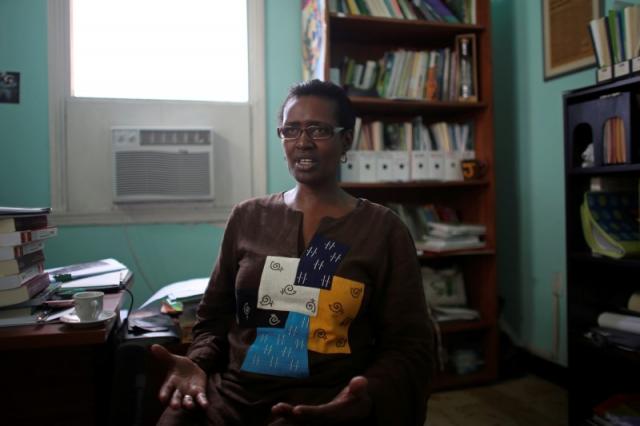Oxfam urges U.S. to end embargo on struggling Cuba
Reuters | Thursday, 21 July 2016 | Click here for original article

Oxfam Executive Director Winnie Byanyima speaks during an interview in Havana, Cuba July 13, 2016. Picture taken July 13, 2016.
The director of Oxfam broke the global aid agency's longtime silence on the U.S. trade embargo on Cuba, urging the American Congress to lift it "sooner rather than later" given the island's mounting economic woes.
Winnie Byanyima said in an interview in Havana that Oxfam was set to formally campaign against the embargo as part of its broader strategy to increase support to Cuba.
President Raul Castro told Cubans last week to brace for tough times as the country had to cut spending and energy supply as it dealt with a cash crunch and reduced oil assistance from socialist ally Venezuela.
"Cuba needs to engage in the global economy and the embargo cuts them out," Byanyima said. "We are going to be calling for a lifting of that embargo and normalizing relations sooner rather than later," she said on Wednesday.
The United States slapped a trade embargo on its southern neighbor after the 1959 revolution that toppled a U.S.-backed dictator. Cuba estimates the embargo has caused $121 billion in damage to its economy.
U.S. President Barack Obama restored diplomatic relations with Cuba and would like to lift the embargo but faces opposition from the Republican-controlled Congress.
The Oxfam director added Cuba must also carry on with its reform agenda to update its Soviet-style command economy. She applauded the fact the country had become more self-critical.
Byanyima said she was visiting Cuba to see how Oxfam could adapt its work in response to the island's growing difficulties.
"We can't keep doing what we always did when their problems multiply," she said.
Oxfam is working mainly in the eastern part of the country, on projects to tackle drought, increase farming output and empower women in rural areas.
A key issue is that, despite being a tropical country, Cuba imports 80 percent of its food, partly due to a decline in productivity when farms were nationalized after the revolution, said Byanyima.
As part of its market-style reforms, Cuba is leasing out land to smallholder farmers, helping increase output and local incomes. Yet many Cubans have lost their farming know-how.
"They have lost maybe two, three or four generations of agriculture culture, so there is a need to build up again this knowledge amongst families for smallholder farming," she said, noting Oxfam had strong experience transmitting that knowledge from farmers throughout the world.
Byanyima lauded Cuba as a "very equal society", which performed well on social indicators such as housing, maternal mortality and access to education. Yet it was right to remain vigilant about creeping inequality as it opened up the economy.
By Sarah Marsh. Editing by Alistair Bell






